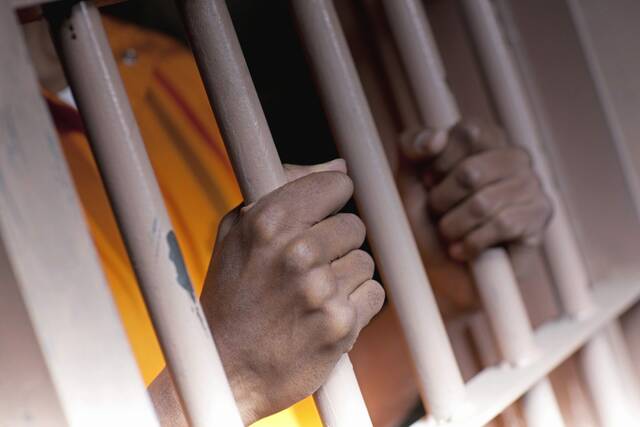https://naviga.triblive.com/opinion/george-p-hartwick-iii-and-chadwick-libby-save-our-most-vulnerable-kids-by-investing-in-juvenile-justice-system/
George P. Hartwick, III and Chadwick Libby: Save our most vulnerable kids by investing in juvenile justice system

It’s often said that our children are our most precious resource. To protect and preserve this vital resource, we must invest in their care now, in order to enrich their future.
In recent years, we have seen a focused investment in our juvenile justice system, which has helped lead to a drop of more than 70% in the number of kids being admitted to secure detention facilities. As a result, more than a dozen detention facilities have closed statewide.
Behind this decline lies a looming crisis.
While we’ve succeeded in reducing the number of kids sent to secure detention facilities, we’ve also inadvertently created a system that leaves hundreds of kids without a safe place to go if, and when, they veer off path and enter the juvenile justice system.
Today, Pennsylvania has 513 licensed detention center beds. But because there are not enough workers to staff those facilities, only 366 beds are actually available — and about half of them are designated for the state’s largest county, Philadelphia.
The need for staffed juvenile detention beds is more than double the number of beds available across the state. As a result, these kids are sent to lower-level shelters or back home on GPS monitoring, where they are often committing new crimes in their communities.
Separately, we lack available secure treatment beds for kids — many of them violent offenders — who have a range of behavioral health needs.
A combination of factors — including staff shortages and low per-diem rates for community-based and residential treatment services — has created a perfect storm that puts children and the public at risk.
Let’s remember that these are kids. They may enter the juvenile justice system for a variety of reasons. But regardless of why they’re in the system, they deserve care and protection — for their own safety and the safety of our communities.
Instead of matching the kids with the program they need, we’re just sending them to the first place with an available bed. This is not only the wrong approach for the kids — it’s dangerous for our communities.
Take Dauphin County as an example.
From Sept. 1 through Nov. 9, Dauphin County had 16 youth offenders whose crimes would have necessitated them to be sent to secure detention facilities based on the seriousness of their crimes. But there were no beds available, so they were sent back to their communities, creating a public safety issue.
These are not low-level offenders. Of those 16 youth offenders, a dozen of them were charged with violent crimes, including gun offenses, aggravated assault on police and a teacher, robbery, aggravated indecent assault, strangulation and other serious offenses.
The picture gets worse over time. Since Jan. 1, nearly 80 kids in Dauphin County committed offenses that should have led to placement in a secure detention facility; however, none were placed because no beds were available.
The situation has gotten so dire that some counties, including Dauphin, now are forced to transfer children to secure detention centers out of state.
Another pressure point in our system is a lack of adequate state investment in community-based treatment programs. This shortfall has led to fewer providers, with many refusing to treat children with severe behavioral problems.
We need a complete shift in the way we care for children who end up in our juvenile justice system.
It’s time we prioritize mental and physical health care and develop solutions based on the acuity of care required to treat the often-complex mental, emotional and physical needs of these kids.
We now have a threefold problem:
We no longer have enough secure detention beds to meet the need.
We don’t have enough access in community-based programs.
We are not investing the level of resources needed in mental and physical health care for these kids to help address their underlying issues.
While there is no easy fix to these issues, continuing down the same path that got us where we are today is not a viable option.
Solving this crisis will require the focused attention and collaboration of a wide range of stakeholders — including the Pennsylvania Department of Human Services, the General Assembly, the judiciary, police and district attorneys, county commissioners, victim advocates, health care providers and insurers, former youth offenders and the community at large.
We urge Gov. Josh Shapiro to prioritize these issues and work with these important stakeholders to transform our juvenile justice system into one that emphasizes access to community-based behavioral and physical health care for these children.
Together, we can continue to build a system that truly helps these kids, improves their overall health and makes our entire community safer in the process.
After all, these are our children — our most precious resource. If we want to save the most vulnerable among them, we must invest in them.
Copyright ©2026— Trib Total Media, LLC (TribLIVE.com)
